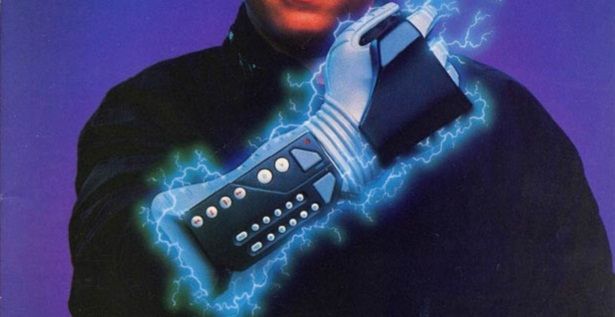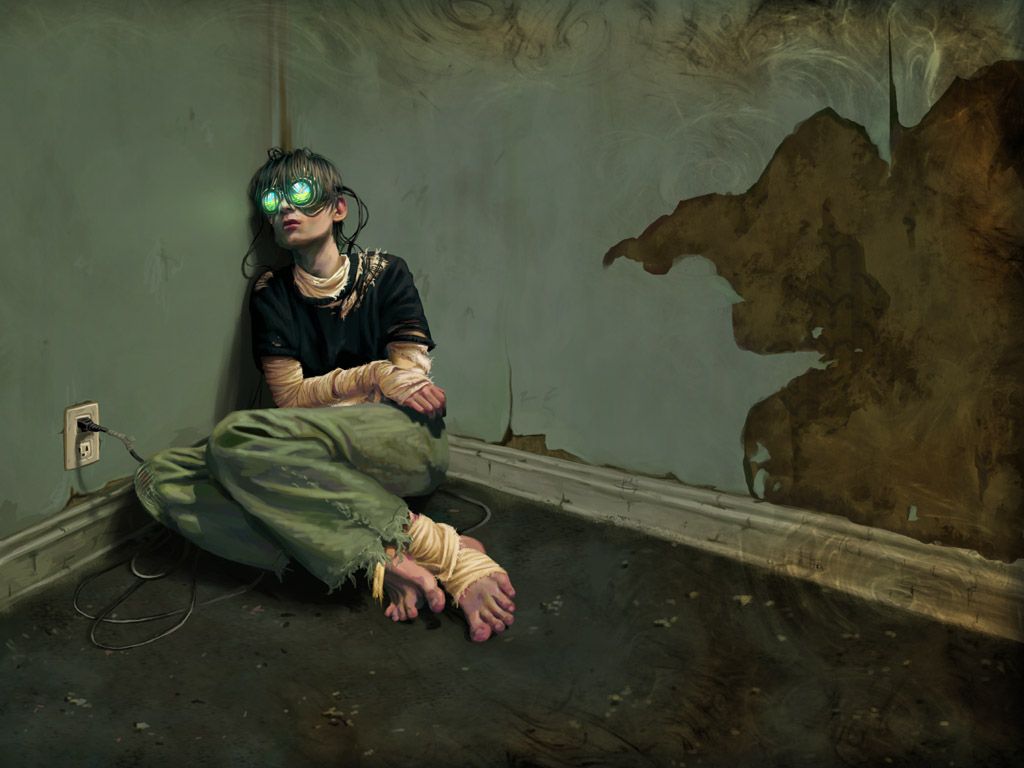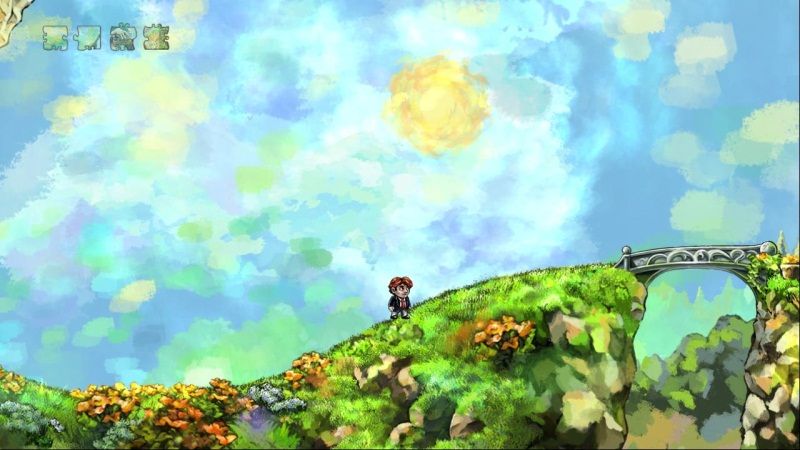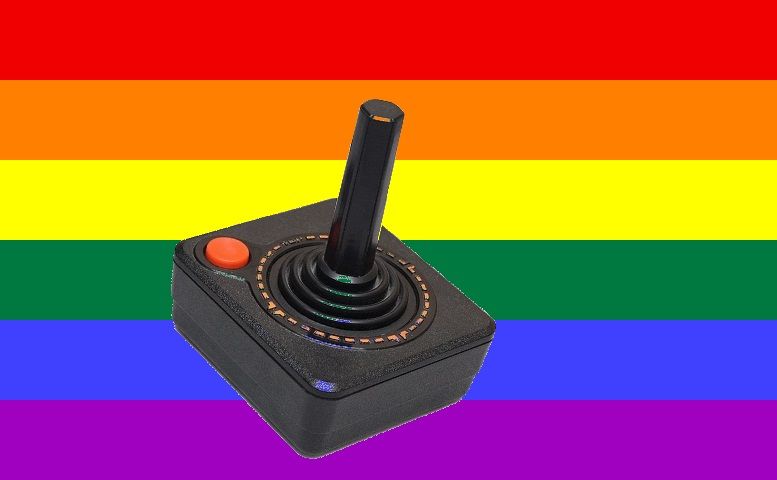The video games industry has never been bigger. Consumers have almost entirely stopped buying CDs in favour of downloads and streaming services, and the movie industry is getting increasingly concerned that it won't be able to support itself as people begin to opt for cinematic experiences in games, rather than in cinema.
But what will the landscape look like in 5 years' time? Will the big exciting technologies of the moment - 3D, motion control and social features - bear fruit, or fall by the wayside? Here's five ways that the video games industry - both console and PC - is going to change by 2015.
More Addictive
It's easy to find tales of addicted gamers. Stories abound of people who let their World of Warcraft habit overwhelm their entire life, becoming social recluses. Thankfully, it's rare and usually symptomatic of other difficulties in the person's life. But given the success of massively-multiplayer titles like World of Warcraft - known for its addictiveness even amongst other gamers - it's difficult to see the next generation of developers not implementing some of the same psychological tricks that can be found in MMOs.
The first has already happened - the creeping introduction of achievements, lampooned wonderfully in the flash title Achievement Unlocked. Little pop-ups giving you points and telling you how well you're doing reward the gamer for nothing but normal play. It's a dangerous approach, however - putting the focus on increasing an arbitrary points total and not on enjoying the games themselves.
Then there's the increasing reliance on RPG elements. Once upon a time, only the beardiest of dungeon-crawlers had attributes for Strength, Stamina and Intelligence, and the ability to "loot" creatures you've killed. Now, they're being found in first-person shooters, real-time strategy games and even puzzle titles. Adding attributes and an inventory to your character personalises the experience, making you much more attached to those pixels than you would otherwise have been.
Lastly, there's the social aspects. If you can't be convinced to carry on playing by a character that you've designed and created from the ground up, then you might be if that character has friends. Forging bonds with other players is the most addictive thing a game can do, because no-one likes letting people down. While many non-gamers dismiss online friends, for the addicted gamer they're like the other drinkers in an alcoholic's favourite bar - a support group that encourages you to carry on doing exactly what you're doing - however destructive it might be.
By 2015, it's likely that even the most simple of games will have achievements to win, stats to increase, loot to collect and ways to make friends with other players.
More Casual
The traditional intake to the video games community is kids pressuring their parents into buying them a console and then picking up a controller for the first time to enter an exciting and violent world populated by guns, orcs and fast cars. But more and more adults are entering the games community, thanks to an increasing range of titles being targeted at an audience with less time to spend gaming.
These "casual" games are no less addictive than their more "hardcore" brothers. They might be more accessible, and take less time to play, but you'll find their players returning to them just as often. The likes of Farmville, Pet Society, and the Popcap empire have far larger audiences than many regular games.
A common stumbling block for most new gamers is the control system. A mouse and keyboard is horribly unintuitive to many people, who end up running into walls and scrolling off the edges of maps. Joypads aren't a whole lot better - "what button is jump, again?". The reason for the Nintendo Wii's phenomenal success is predominantly because it's easy to pick up and play, even if you've never played a game before.
Nintendo's rivals know this. That's why they're developing their own systems, and by 2015 you'll be using Microsoft's Project Natal and Sony's Move controller to interact with games in new ways. On the one hand, it gets you up off the sofa. On the other hand, it's not exactly relaxing, is it? All that jumping around.
By 2015, you won't be sat on the sofa with a joypad in hand any more. You'll be running, jumping, waving your arms about like a fool, and thoroughly exhausted by the end of it all.
More Indie
An increasing trend in video games over the last year or 2 is a celebration of the retro. A celebration of old-skool game mechanics, like platforming. A celebration of punishing difficulty settings and oddball plots that don't entirely make much sense.
But this renaissance isn't being pushed by big games publishers. Bedroom developers are creating a raft of independent games that recall the independent music explosion of the late 1970s and early 1980s, that rejected big-budget, overblown albums that relied on grand concepts, rather than catchy tunes. Video gaming is having its punk.
What that means is that wildly noncommercial concepts, kooky mechanics, and art games are getting a look-in across the PC, WiiWare store and Xbox Live Arcade, when a few years back you'd only see a parade of macho brown shooters, games about ponies and ultra-complex strategy titles.
A similar movement is taking place on the iPhone App Store. Big games publishers were slow to get onboard with Apple's mobile platform, having shunned the Mac for years, and as a result the initial flurry of development of games for the iPhone was almost entirely controlled by small independent bedroom coders, who wanted to make something fun.
This explosion of creativity is fantastic, but to find out where it'll end up in 5 years' time, all we have to do is look at what had happened to punk by the middle of the 80s. It had become a cartoon pastiche of itself - crammed onto major label compilation tapes. In the same way, big publishers are already eyeing up promising concepts and art styles to co-opt into the next generation of titles, which will be arriving in the next 5 years.
By 2015, games will be more interesting and diverse, but no less controlled by the major video games publishers. The independent games developers will be crowded out, and go back to their day jobs.
More Cloudy
One of the developments in technology that's likely to have the biggest impact on games in 2015 is the take-up of cloud computing. The concept of storing your data on an external server that's always-on and always backed-up will have particular resonance in the mobile gaming industry, but there's plenty for console owners to get excited about too.
Some implementations of the cloud have already arrived. Distribution service Steam, which rules the roost in PC gaming, offers you the ability to buy a game once and then download and play it on any PC that you install the Steam software on. It can also save your settings and save games for particular titles, but that functionality isn't yet widespread.
Within the next few years, though, it's likely that you'll be able to continue games across more than one machine, and even machines of different types. Microsoft has already demonstrated a platform that'll work across the PC, Xbox 360 and mobile phone. You'll be able to start playing a game at lunchtime at work, then finish off the level on your phone on the way home.
For more complex titles that can't be easily replicated on a small screen, you'll be able to access certain aspects. Blizzard is already experimenting with allowing access to the auction house in World of Warcraft from your mobile phone. You might be able to chat to people in town in an RPG without being able to visit the dungeons to kill monsters. Importantly, though, it'll allow you to make progress in a game despite not being able to access the full experience.
By 2015, you'll have one save-game that you can access from any machine at any time, and be able to usefully accomplish things in your favourite game even when you're away from your computer or console.
More Respected
Lastly, gaming's growing audience will mean one thing more than any other. Gamers will be less ashamed of their hobby. As an art form, games have long been looked down on by the media, but that's starting to change.
Games are beginning to get column inches in the more forward-looking national newspapers. Not just reviews of the latest shooter, but discussion of concepts, art styles and play mechanics. MP Tom Watson has started a pressure group, aiming to stop tabloid papers printing one-sided scare stories about video games.
The games industry is responding well to this newfound respect. It's examining more adult concepts. It's treating emotion as shades of grey, rather than black and white. It's beginning to respect homosexual players, though that's a battle that's still being fought. Video games are growing up, slowly.
By 2015, it'll be okay to list "video games" on your CV under hobbies. You'll be able to start a discussion about Warcraft in the pub without getting mocked. Perhaps you might even be able to tell people on a Modern Warfare 2 server that you're gay, without being incessantly mocked by 14-year-olds.
Conclusions
So, if current trends continue, by 2015 games will be as addictive as crack and still controlled by the major publishers, but they'll also be casual and cloud-based enough to play on a train. When playing in public, no-one will stare at your screen because they'll be too focused on their own games.
They'll be more interesting, and deal with more delicate issues, but there'll also be stats, loot and achievements in everything. ACHIEVEMENT UNLOCKED: CAME OUT THE CLOSET! (10 POINTS) will be a familiar sight. But you must have your ideas on what we missed out of the list above. You can share your thoughts on how you see video games in 2015 in the comments box below.
If you enjoyed this article, then head over to our Future Week homepage where you'll find a collection of features on what gadgets will be like in the year 2015.





